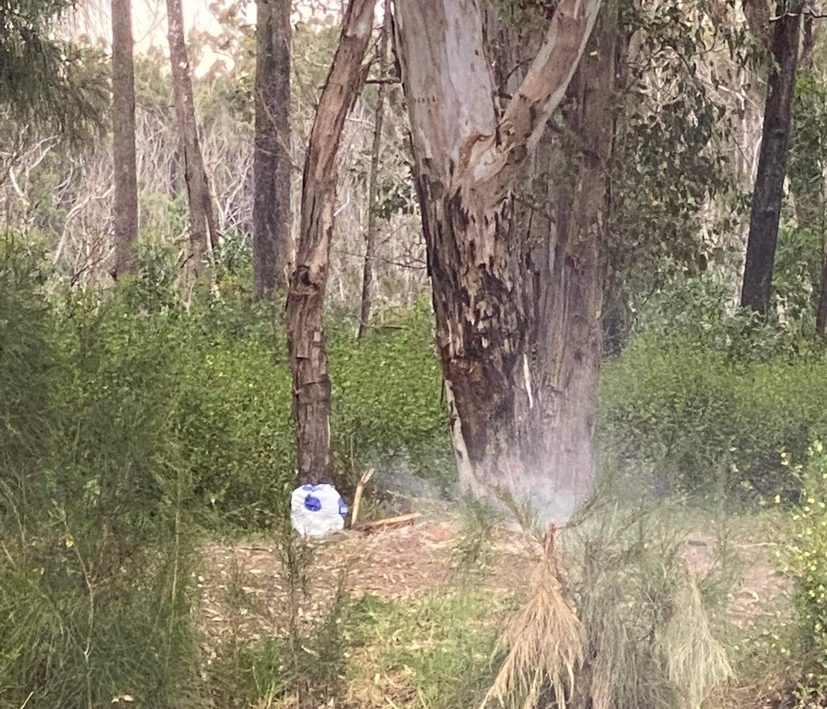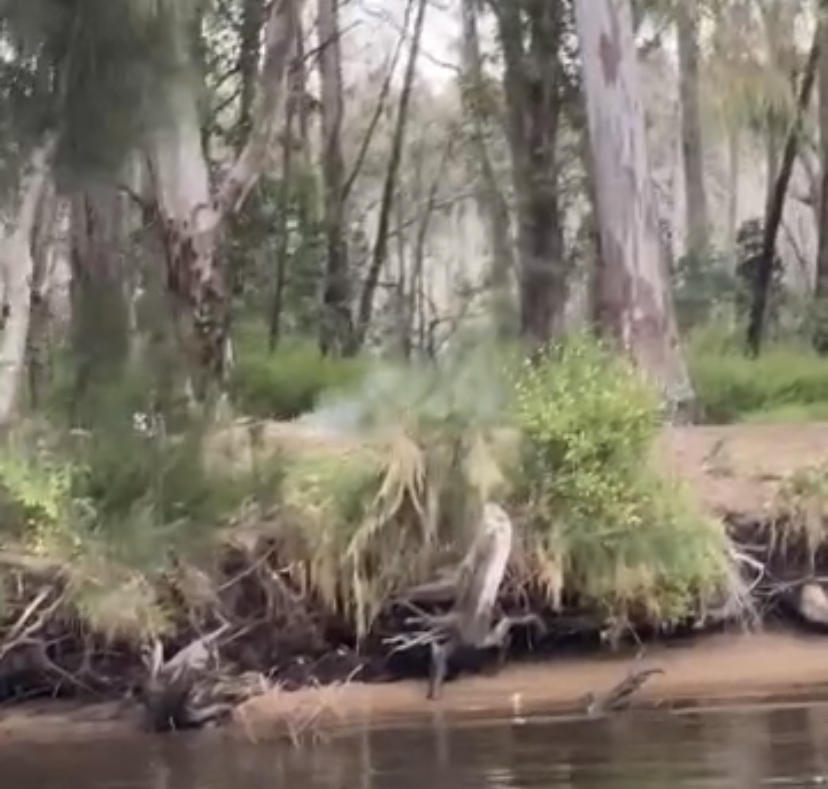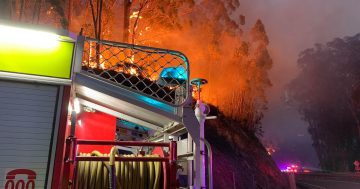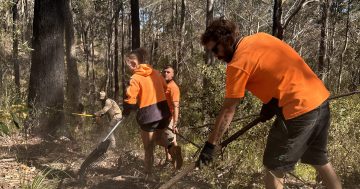
The campfire was left smouldering on the riverbank posing a potential bushfire risk. Photo: Anna Dunne.
After losing their Nelligen home in the Black Summer bushfires, Anna Dunne’s family was horrified to come across a smouldering campfire in the bush while boating on the Clyde River this week.
After smelling smoke, they pulled the boat onto shore and Anna’s son Dominik used three 20-litre buckets of water to extinguish the fire which was surrounded by grass and thick bush.
She is pleading with campers and picnickers to fully extinguish their fires on beaches and in the bush for fear of bushfires and the possible closure of campsites.
“We were on the boat and I just smelt the smoke. All the kids were with us, then we passed a camp spot and saw smoke,” she said.
“Idiots that leave fires going after they leave – don’t they realise it can actually start a bushfire?
“It is a privilege to be able to camp on the river, and a few brainless selfish individuals can ruin it for everybody.”
Anna said she was concerned about the impact fires could have on “previous victims of a major disaster” like her family.
“After the 2019 fires, any smell of smoke on a windy day can be quite daunting,” she added.
Anna said generally campers were “quite good”, but this group had also left two full bags of rubbish around the fire.

The smouldering campfire was spotted from a boat on the Clyde River. Photo: Anna Dunne.
Rural Fire Service Far South Coast acting district manager Daniel Osborne said unattended campfires in the bush and on beaches were a common occurrence during the summer months.
He said fires that weren’t extinguished properly could flare up days later when the wind picked up, and could become uncontrollable, potentially impacting the surrounding bushland, assets and homes.
“Before they even light a fire people need to ensure they’re on land where they have permission to do so,” Mr Osborne said.
“We have a big issue with campfires on beaches where fires are not permitted.
“Also, National Parks and Forestry have clear restrictions around where people can conduct campfires and on some days they can’t be lit at all.”
He said people must ensure they have the permission of landowners and light fires in properly constructed fireplaces surrounded by at least two metres of ground cleared to dirt so it doesn’t spread.
The lighting of campfires should be supervised by an adult and there must be water available to put the fire out.
When it came to extinguishing a fire, Mr Osborne said water should be used and residual wood and coals moved around to ensure the fire was completely out. Once the temperature of the fire was reduced, it should be covered with dry earth.
“It’s a very serious thing. If people are going to conduct a campfire, they must do it responsibly and extinguish it thoroughly before they leave,” Mr Osborne said.
If a fire does escape, and it can be proven who was responsible for lighting it, that person can face significant penalties, including jail time, under the Rural Fires Act.
Eurobodalla Shire Council rangers can also issue fines to people who disobey the rules and light illegal fires on the region’s beaches.
Smouldering beach fires pose risks to people, especially young children, who can step on them the next day. Covering fires with sand does not extinguish smouldering logs.










